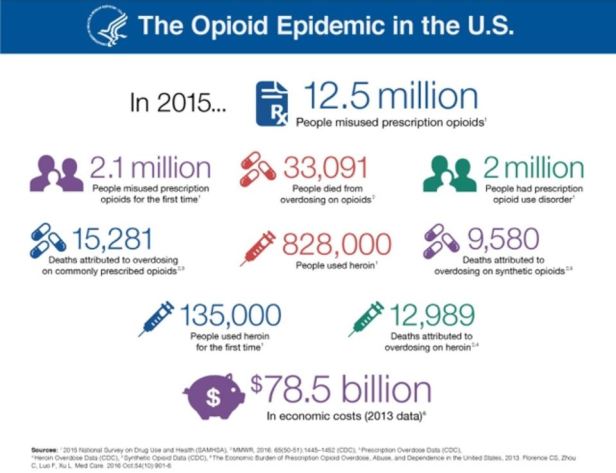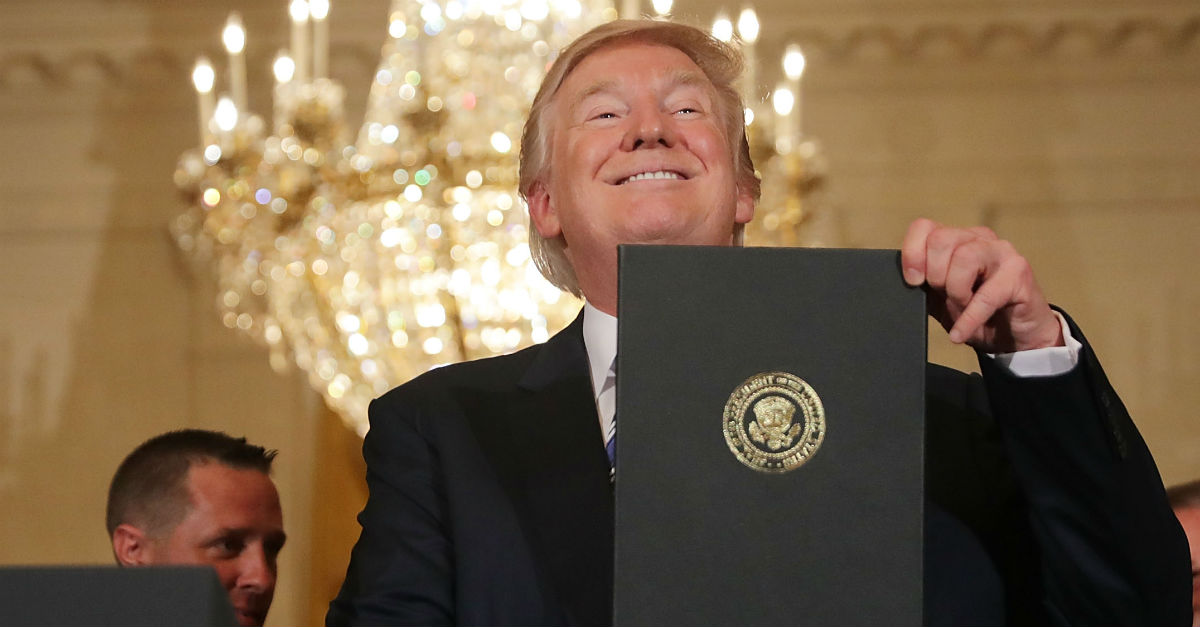On Thursday, the acting secretary of the Department of Health and Human Services announced at the daily press briefing that President Trump will donate his third-quarter salary to the HHS department in an effort to aid their fight the opioid epidemic.
Videos by Rare
Secretary Eric Hargan told the press pool “[the president’s] decision to donate his salary is a tribute to his compassion, to his patriotism and his sense of duty to the American people.” He continued, “We are so pleased that President Trump has chosen to donate his salary this quarter to the planning and design of a large-scale public awareness campaign about the dangers of opioid addiction.”
Acting Health Secretary Eric Hargan says President Trump will donate his 3rd quarter salary to HHS, specifically devoted to fighting the opioid crisis https://t.co/Wuze1hYih6
— CNN Politics (@CNNPolitics) November 30, 2017
In the first quarter, Trump donated his salary to the National Parks Service and during the second quarter, he gave the money to the Department of Education. His first paycheck was worth about $78,000 while the second one totaled $100,000, per Politifact. Both times, Press Secretary Sarah Sanders presented representatives from the departments with the checks.
President Trump has been outspoken about the opioid epidemic plaguing the U.S. — in August he told reporters that he was preparing to declare the epidemic a national emergency. That announcement followed a previous move in March when Trump signed an executive order appointing a commission on combating drug addiction and tasking New Jersey Governor Chris Christie with leading the committee.
RARE POV: Private sector vs. government: Why is Matt Lauer out but John Conyers still there?
In late October, Trump finally did declare the opioid epidemic a public health emergency but stopped short of declaring it a national emergency. In his announcement, Trump said “We are currently dealing with the worst drug crisis in American history — it’s just been so long in the making. Addressing it will require all of our effort.” He also reflected on his personal encounters with addiction — his brother Fred was an alcoholic and, because of his brother’s influence, the president has never drank alcohol.
I'm honored to announce $185,000 in funds to match @POTUS salary which together will restore Antietam historic sites pic.twitter.com/VO36gdSzaP
— Secretary Ryan Zinke (@SecretaryZinke) July 5, 2017
Some critics claimed that the October declaration was little more than a hollow signal since it didn’t actually put any money into combating the crisis. Senator Patrick Leahy (D-Vt.) pointed out that the 2018 budget proposal would actually cut funding aimed at combating the opioid epidemic by $97 million, saying in a statement “There is no action or new funding behind the president’s empty words to address this crisis. This is not acceptable.” Stanford Professor and former Obama Adviser Dr. Keith Humphreys called the move “pathetic” in an interview with NPR.
Unfortunately, the opioid epidemic has reached a disastrous level and it’s going to take a lot to pull the county from the grips of prescription painkillers and heroin. One chart recently published by HHS shows the extent of the problem by the numbers:

Trump’s decision to donate his paycheck first came around in September during a question & answer session on Twitter in 2015 when he said “I won’t take even one dollar.” He is the third president not to accept a salary while in office, John F. Kennedy and Herbert Hoover both gave their salaries to charity. Presidents tend to make only about $400,000 a year



